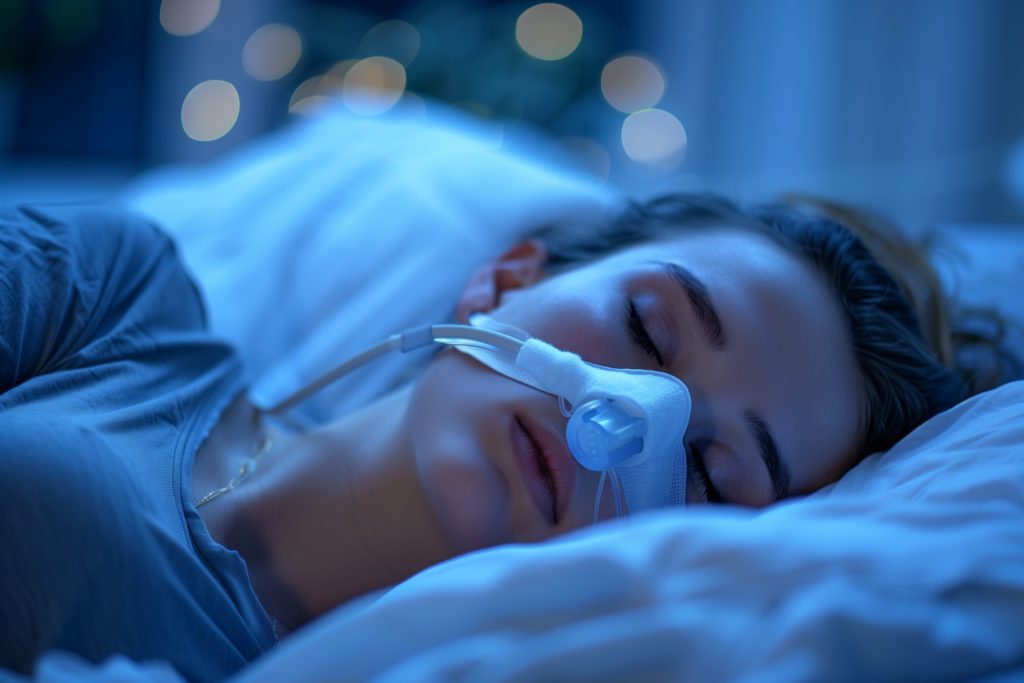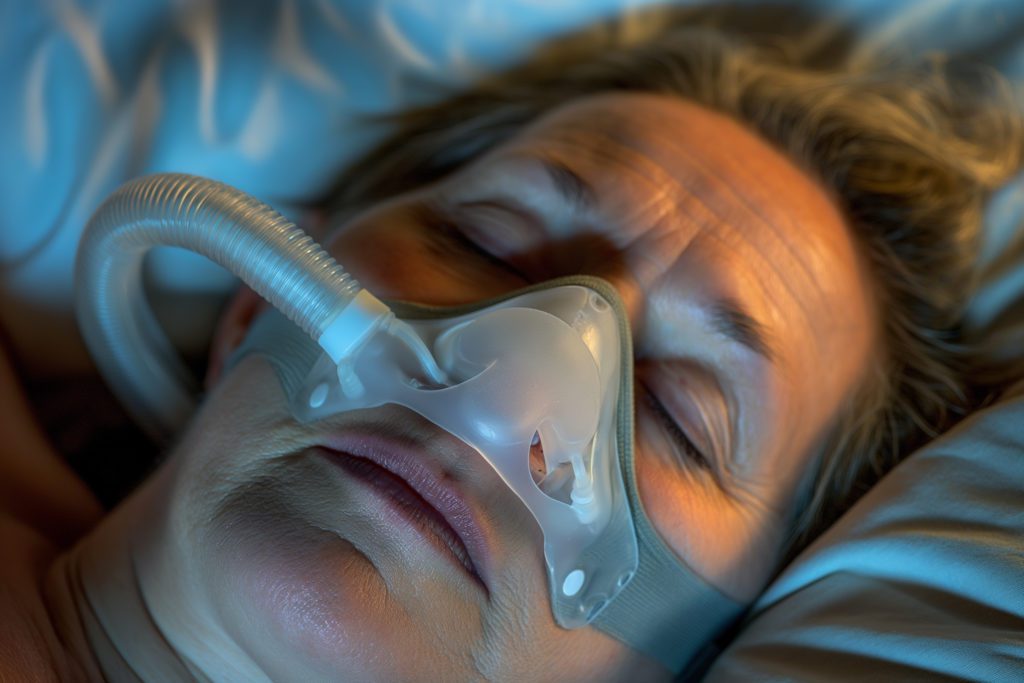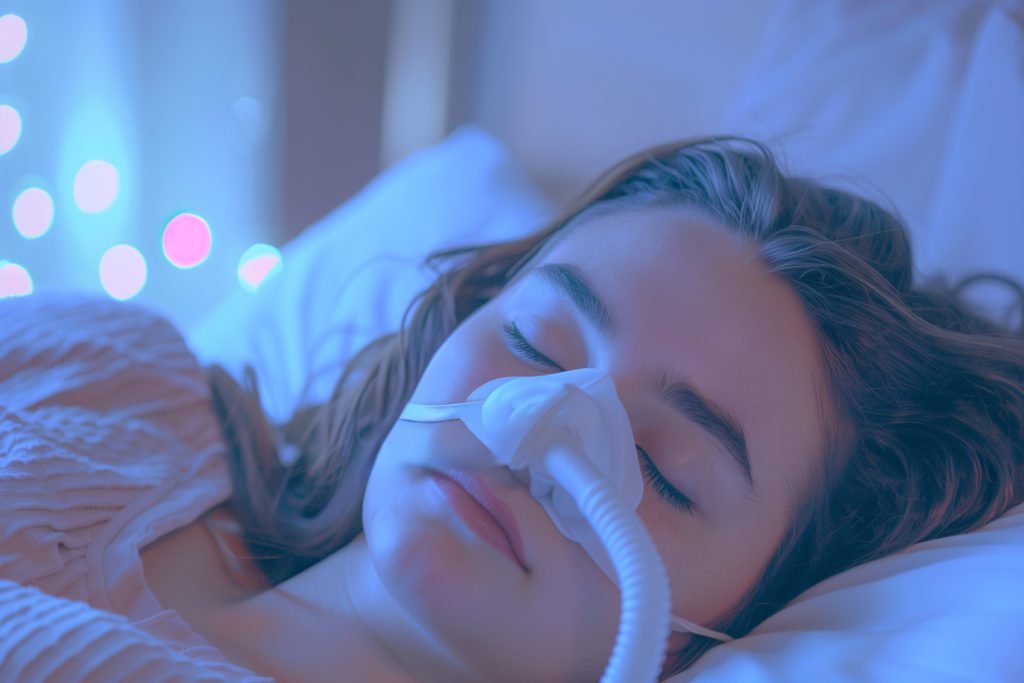
Benefits of CPAP for Sleep Quality
A CPAP machine is used to treat sleep apnea. It uses pressurized air to keep your airways open while you sleep. This can greatly improve your sleep.

A CPAP (continuous positive airway pressure) machine is used to treat obstructive sleep apnea (OSA). About 39 million adults in the U.S. have sleep apnea. This sleep disorder disrupts breathing and is linked to heart and kidney disease. It can even be fatal without treatment.
CPAP machines are effective when it comes to treating OSA. Most people notice immediate improvements in sleep quality when starting CPAP therapy.
What is a CPAP Machine?
A CPAP machine continuously delivers pressurized air through your mouth or nose while you sleep. This causes your airways to stay open while you sleep at night. This helps you sleep more soundly, snore less, and breathe better.
Types of CPAP Machines
There are multiple types of CPAP machines available.
- Standard CPAP: The most common type of CPAP, this machine provides air flow continuously at a fixed pressure.
- Bilevel positive airway pressure (BiPAP): This machine uses a higher pressure while inhaling (breathing in) and a lower one while exhaling (breathing out). This is more similar to natural breathing.
- Auto-adjusting positive airway pressure (APAP): This type of machine uses software to adjust the amount of air pressure based on your breathing patterns during the night. Some people find these Auto-PAPs more comfortable than standard CPAPs.
Masks
CPAP machines include a mask that fits over your mouth and/or nose. The mask delivers continuous pressurized air. There are many styles of masks available. These are the most popular ones:
- Full mask: This mask fits over your entire mouth and nose. A full mask is ideal if you breathe through your mouth while you sleep. However, some people may feel claustrophobic or restricted using these types of masks.
- Nasal pillows: This mask covers very little of your face. It fits right up against your nostrils. It is a good alternative if a full mask makes you feel anxious and uncomfortable.
Who Uses a CPAP Machine?
A CPAP machine is most often prescribed for obstructive sleep apnea, a disorder in which a person frequently starts and stops breathing while asleep. This condition can cause the airways to narrow or close, resulting in loud snoring.
Signs of OSA include loud snoring, daytime fatigue, headaches, and sleepiness. But, many people don’t know that they have OSA unless a partner notices symptoms like snoring.
A person with OSA might experience hundreds of episodes of disrupted breathing a night. This can have severe impacts on sleep and overall quality of life. Untreated sleep apnea can make it dangerous to drive. People with the condition have a 2.5-fold increase in risk of having a motor vehicle accident. OSA can also interfere with memory and concentration.
When chronic sleep apnea is not treated, it raises the risk of high blood pressure, diabetes, heart disease, and stroke. Studies have found that people with severe obstructive sleep apnea have an increased risk of death compared to people without OSA symptoms.
What Are the Benefits of a CPAP Machine?
The main benefit of a CPAP machine is immediate improvements in sleep quality. This can result in:
- Improved energy - People using CPAP often notice a serious change in energy levels after starting therapy. One study found that just three weeks of CPAP therapy reduced fatigue and increased energy in patients with OSA.
- Reduced snoring - CPAP use results in a significant reduction of snoring, leading to significant improvements in quality of life both for the person using the CPAP and their bed partner.
- Reduced fatigue and daytime sleepiness - Studies have shown that CPAP therapy is effective at reducing daytime sleepiness.
- Improved concentration and focus - CPAP users may see improvements in focus, memory, and cognitive performance. Numerous studies have shown that this therapy benefits executive functioning.
- Reduced risk of motor vehicle accidents - A systematic review of the literature published in the journal Sleep found that CPAP therapy significantly reduces the risk of automobile crashes among persons diagnosed with severe obstructive sleep apnea.
Better sleep can also improve your mood and overall mental health. One study found that daily CPAP use had a significant reduction in both depressive and anxiety symptoms among those diagnosed with moderate to severe obstructive sleep apnea.
CPAP Challenges
Using a CPAP machine can come with some challenges. Some people may struggle with having the mask cover their entire nose and mouth. Others are plagued by air leaks that keep them awake.
To deal with these issues, work with your sleep specialist to troubleshoot the issue. The pressure on your CPAP may need to be adjusted. Or you may need another CPAP or mask better suited to your needs. You can usually try a variety of options.
Some CPAP machines have a “ramp” feature that slowly increases the air pressure as you fall asleep. This can make it easier to fall asleep with the mask on if you are bothered by the air pressure.
CPAP Tips
Adjusting to a CPAP can be hard. Don’t compromise your sleep quality by not using one if your doctor has recommended it. It’s worth the effort for your sleep and overall health. Here are some tips to help you better use your CPAP.
- Use the CPAP every night - Regular use of the CPAP is critical for achieving better sleep. So, use your CPAP every time you sleep, including during naps. The more you use it, the better your sleep will be.
- Ensure a comfortable fit - Your mask should fit well and be comfortable. If it leaves red marks on your face, leaks air, or feels too tight, adjust it.
- Choose the right mask style - There are various styles for you to choose from. Select the one that works best for you. Your doctor or sleep specialist will be able to help you choose the right one.
- Wear your mask during the day at first - Put it on while you are watching TV or relaxing. This can help you get used to wearing it.
- Keep the machine clean - Properly maintaining your CPAP is key to keeping your machine working properly. Follow the instructions that came with the machine for maintaining it.
CPAP machines are a very effective treatment for people with obstructive sleep apnea. A CPAP can help you feel better rested and fight fatigue. It takes some time to get used to wearing a CPAP mask. But, with the above tips, you can make CPAP part of your nightly routine.

Written by
Emily Mendez
Emily Mendez is a former therapist and mental health author. She is one of the leading voices in mental health. Emily's writing has appeared in eCounseling, SonderMind, and more. Emily is frequently interviewed by Healthline, Fatherly, INSIDER, Family Circle, and other national media for her advice and expert opinion on the latest mental health topics.
Download Pillow
Get help
Press & News
Legal
Connect
X (Twitter)
Company
Copyright © Neybox Digital Ltd.



